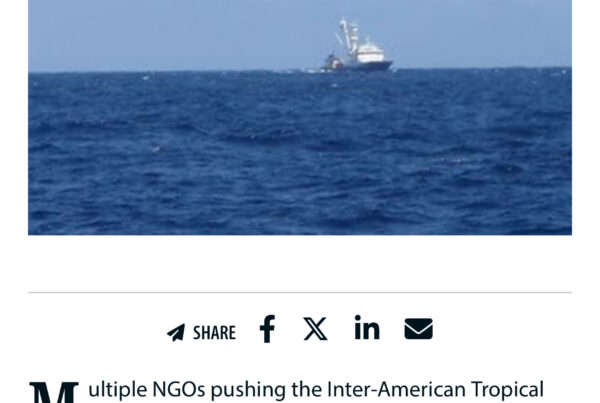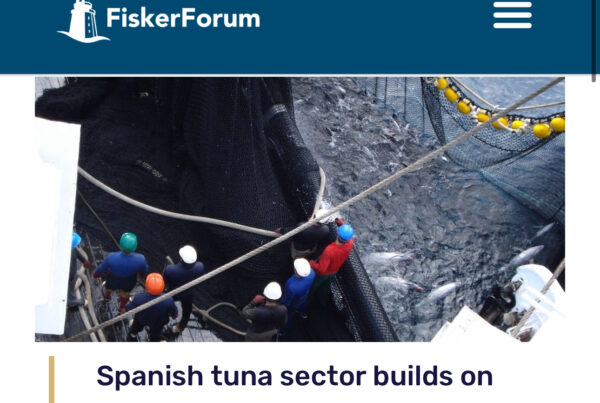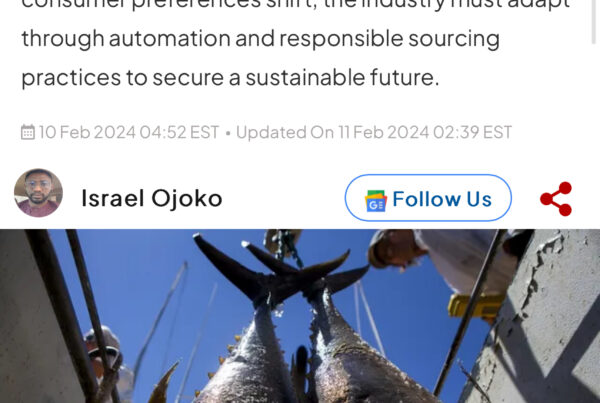The state of labor conditions in the Fijian longliner fleet has come under closer scrutiny following the issuance of a withhold-release order by U.S. Customs and Border Protection in August.
The Hangton No. 112, owned and operated by Suva, Fiji-based Hangton Pacific Co., was hit with the order on 4 August, with the CBP citing the presence of three of the International Labor Organization’s 11 indicators of forced labor during an investigation of the vessel’s operations: withholding of wages, debt bondage, and retention of identity documents. CBP’s order requires all U.S. agencies to detain products harvested by the vessel, effectively prohibiting the company from exporting any seafood caught by the Hangton No. 112 into the United States.
Hangton Pacific General Manager Jitendra K. Mohan said his company has been exporting to the U.S. for more than two decades, and that the order has already had a negative impact.
“All our customers are concerned and reluctant to trade,” he wrote in an email to SeafoodSource. “The future is bleak unless the matter is resolved quickly.”
Mohan said he has met with representatives of CBP in order to figure out what the company can do to have the order removed, but has not yet received details of CBP’s investigation.
“We have had a constructive discussion with CBP,” he said. “During the discussions, we could not get the specifics incidents, but overall have identified some areas we have to get more involved. As it seems, actions and conduct of recruiting agents needs greater scrutiny and monitoring. How crew are treated on return – for example, pay-outs and release of ID documents. Will have to review the agreements with recruiting agents to reflect same and ensure its implementation.”
Mohan said the crews working aboard his company’s vessels have access to Fijian port officials, who conduct inspections “each and every time” each boat comes into port.” Furthermore, “the Indonesian embassy in Fiji is easily accessible to crew and have intervened if enquired,” Mohan said.
“Some recruits who are first-timers have terminated their contracts after first fishing trip and their repatriation have been arranged,” he said.
Over the past year, the U.S. government has significantly increased the number of penalties it has issued against fishing companies it believes to have engaged in labor abuse, but previously, its efforts had been focused on the Chinese and Taiwanese fleets. While many vessels in the Fijian fleet are majority- or minority-owned by Chinese firms, Mohan said Hangton Pacific is a “fully Fijian-owned company without any foreign shareholders.”
Mohan said he’s convinced the CBP acted on a Greenpeace report based on complaints from a single employee who ceased working for Hangton Pacific in 2018.
“If Greenpeace is involved, then it’s sad, because they never did an honest investigation. It’s very unprofessional [of them] to vilify our company,” Mohan said. “Their irresponsible conduct is going to affect hundreds of jobs and their families – hard to believe they represent human rights.”
Arifsyah M. Nasution, the oceans campaign lead for Greenpeace Southeast Asia, confirmed to SeafoodSource it was a complaint from a migrant worker who had worked on the Hangton No. 112 that resulted in the vessel’s mention in its 2019 “Seabound“ report. The complaint was made through a resignation letter the worker sent to Hangton Pacific via the Indonesian Migrant Workers Union (SBMI), which was then received by Greenpeace.
“The migrant fisher experienced abusive working and living conditions, discrimination, including threats and intimidation on the vessel Hangton No. 112,” Nasution said. “The migrant fisher also experienced and even is still experiencing the debt-bondage conditions until now. Based on the latest correspondence made by the SBMI team with the migrant fisher by end of July 2021, some of his personal and family important documents of this migrant fisher, such as his family card, education certificate, Indonesian citizen card, including his passport and seamen book, upon arrival back to Indonesia, are still being held by an Indonesian manning/recruitment agency (which recruited the fisher and sent him to work for Hangton Company vessels). He needs to pay some amount of money to be able to take back his documents from the recruitment agency, based in Indonesia.”
Read more (SeafoodSource)



